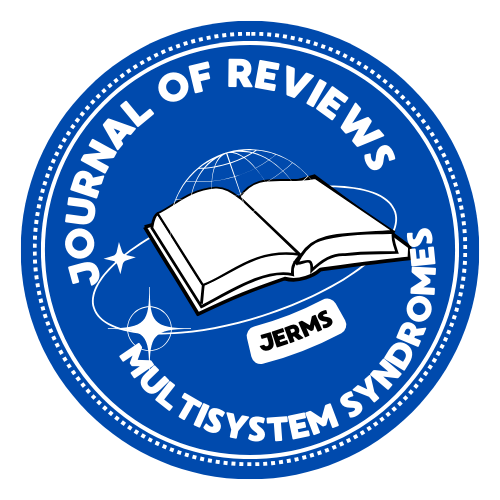The Importance of Interdisciplinary Collaboration in Research
- Journal of Empirical Reviews in Multisystem Syndromes. JERMS
- Nov 5, 2024
- 3 min read
Journal of Empirical Reviews in Multisystem Syndromes (JERMS)

Jabr Asmew (Editorial team)
Published: Nov/2024
Vol. 1, Issue 1
As researchers and clinicians continue to seek both etiology and treatment for multisystem syndromes, one thing becomes increasingly clear: no single specialty holds all the answers. Diseases that span multiple systems-affecting organs and physiological processes in ways that transcend traditional boundaries-demand a collaborative approach that draws from diverse fields, including, but not limited to, immunology, cardiology, neurology, and endocrinology. This has created a new paradigm for us in the understanding of health and disease, from organ-based siloed models to one where the body is interconnected in many ways.
Multisystem syndromes are unique in nature. Consider, for example, systemic autoimmune disorders, or even post-acute sequelae of viral infections-these involve everything from the nervous and cardiovascular systems to the integumentary and musculoskeletal tissues. It is not possible for one single-discipline perspective to handle such conditions. It therefore involves diagnosis, study, and treatment that necessitate coordination in marshaling expertise from a range of specialties to thoroughly describe the manifestations and progress of disease. Unfortunately, our health care and research infrastructures have traditionally been organized into silos in which specialists often work narrowly within their area of concentration to create fragmented care and, often, a delay in the understanding of disease.
On the other hand, emerging research frameworks value inter-disciplinarity. Systems biology and integrative medicine are, for instance, on the increase in that they place into perspective the relationships of physiological processes studied piecemeal in the past. In the lab, immunologists collaborate alongside cardiologists and neurologists to learn how inflammation in autoimmune disorders could fuel cardiovascular and neurodegenerative changes. Interdisciplinary care teams follow suit in clinical settings to ensure that patients benefit from uniform diagnostic and management approaches.
It was on this very principle of interdisciplinary collaboration that the Journal of Empirical Reviews in Multisystem Syndromes, JERMS, was founded. Our mission at JERMS is to afford researchers from diverse backgrounds a forum for research that transcends traditional boundaries and embraces a holistic view of multisystem syndromes. Submissions are encouraged from all specialties related to research into and the treatment of these complex conditions. We will achieve this objective by publishing narrative reviews, case studies, and expert editorials across different disciplines to stimulate knowledge sharing and the development of new collaborations among researchers and clinicians.
The complex issues related to multisystem syndromes are more appropriately addressed when an interdisciplinary approach is used. A cardiologist might notice a cardiovascular manifestation of an autoimmune disease that also occurs in neurology. When an endocrinologist seeks to understand the interest of nervous system involvement in metabolic diseases, he or she would seek the insight of a neurologist. This kind of synergy, when different types of experts come together, the knowledge shared goes beyond constraints set by their respective disciplines. Such synergy is necessary to make a leap forward in diagnostics and treatment; meanwhile, moving closer to personalized medicine, taking into consideration all the subtleties of each patient's experience.
As we grow with a deepened understanding of multisystem syndromes, JERMS is committed to championing interdisciplinary research across specialties, binding specialists together. We consider that working together-in fields, perspectives, and methodologies-is the only possible way to effectively deal with challenges developed by these complex diseases. By all means, JERMS strives not just to be a storage of knowledge but a catalyst for collaboration and innovation in the study of multisystem syndromes.


.png)
Comments